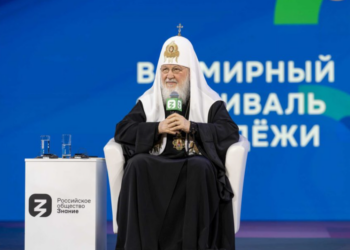In anticipation of the parliamentary debate and vote on the bill regarding the marriage and adoption rights of same-sex couples, the Holy Synod of the Church of Greece has addressed members of the Greek Parliament through a comprehensive seven-page letter.
The letter stresses the Synod’s appeal to MPs, urging them to consider that the proposed legislation “does not merely address the immediate concerns of specific individuals within the LGBTQ+ community through temporary measures but fundamentally alters the foundational institution of family throughout the country.” The Synod emphasizes that the repercussions of this legislation will not be abstract, affecting the rights of future children and the fundamental well-being of Greek society.
Among its concerns, the Holy Synod highlights issues of gender neutrality in the parent-child relationship, contending that the bill transforms parents from the traditional roles of father and mother into neutral guardians, prioritizing the rights of homosexual adults over the interests of future children.
Furthermore, the Synod argues that existing rights for same-sex couples in Greece are adequately addressed through civil unions, asserting that “there is no constitutional or international obligation (e.g., European Convention on Human Rights) to establish same-sex marriage and parenting.”
Addressing the debate around human rights, the Holy Synod questions whether aligning with the majority of progressive societies should replace the natural need of a child for both a father and a mother, asserting that “the Greek people remain progressive” while “prioritizing the essential roles of both parents in child upbringing.”
Regarding surrogacy, despite claims that the bill excludes surrogacy for male couples, the Synod believes that conflicting regulations suggest the recognition of surrogacy acquisitions if registered in foreign states allowing it, potentially leading to the economic exploitation of vulnerable women: “The aforementioned factors serve as incentives for the economic exploitation of vulnerable women, both within Greece and beyond its borders, reducing them to the status of professionally operated breeding machines.”
The full seven-page letter is available in Greek below:
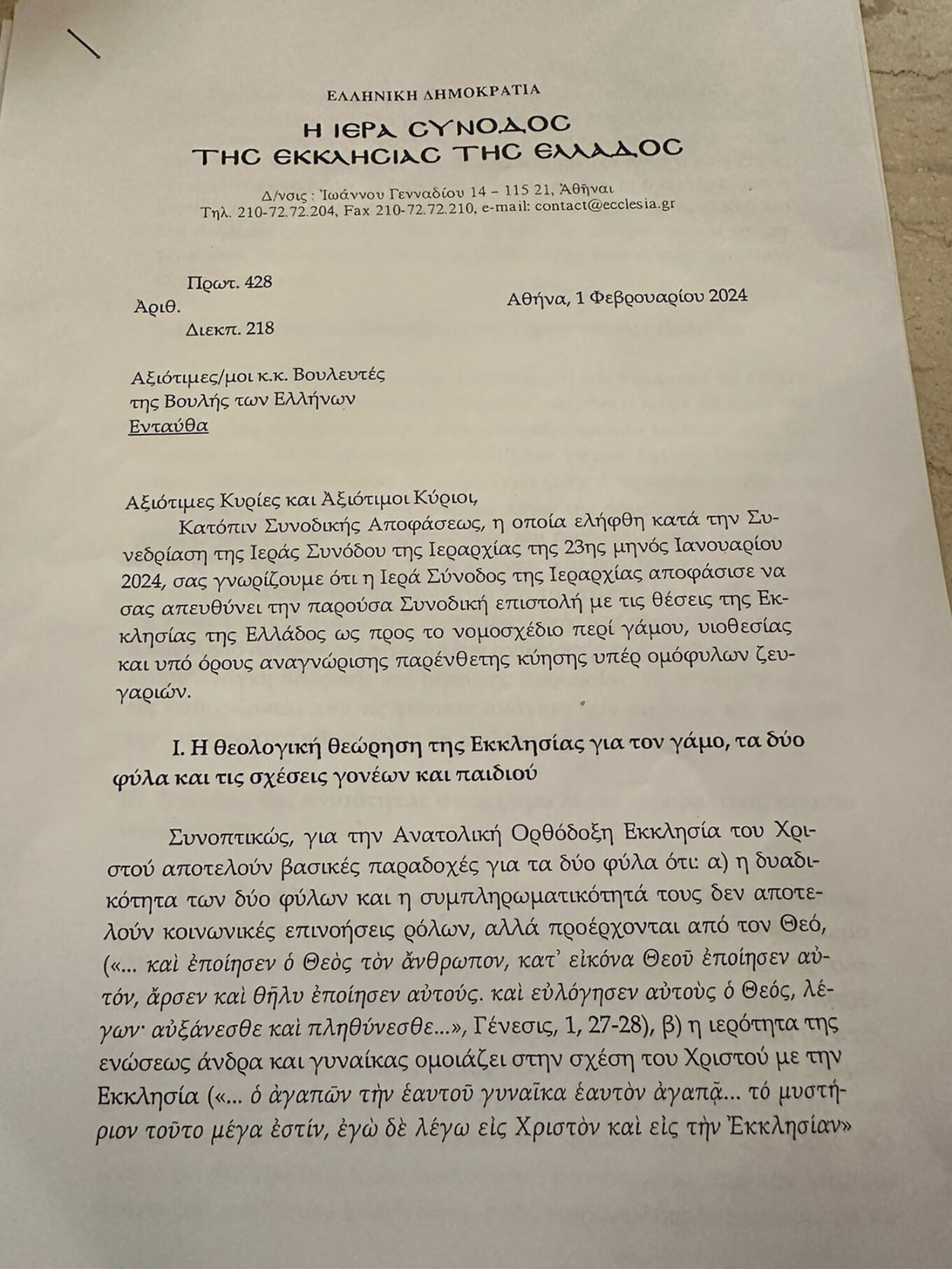
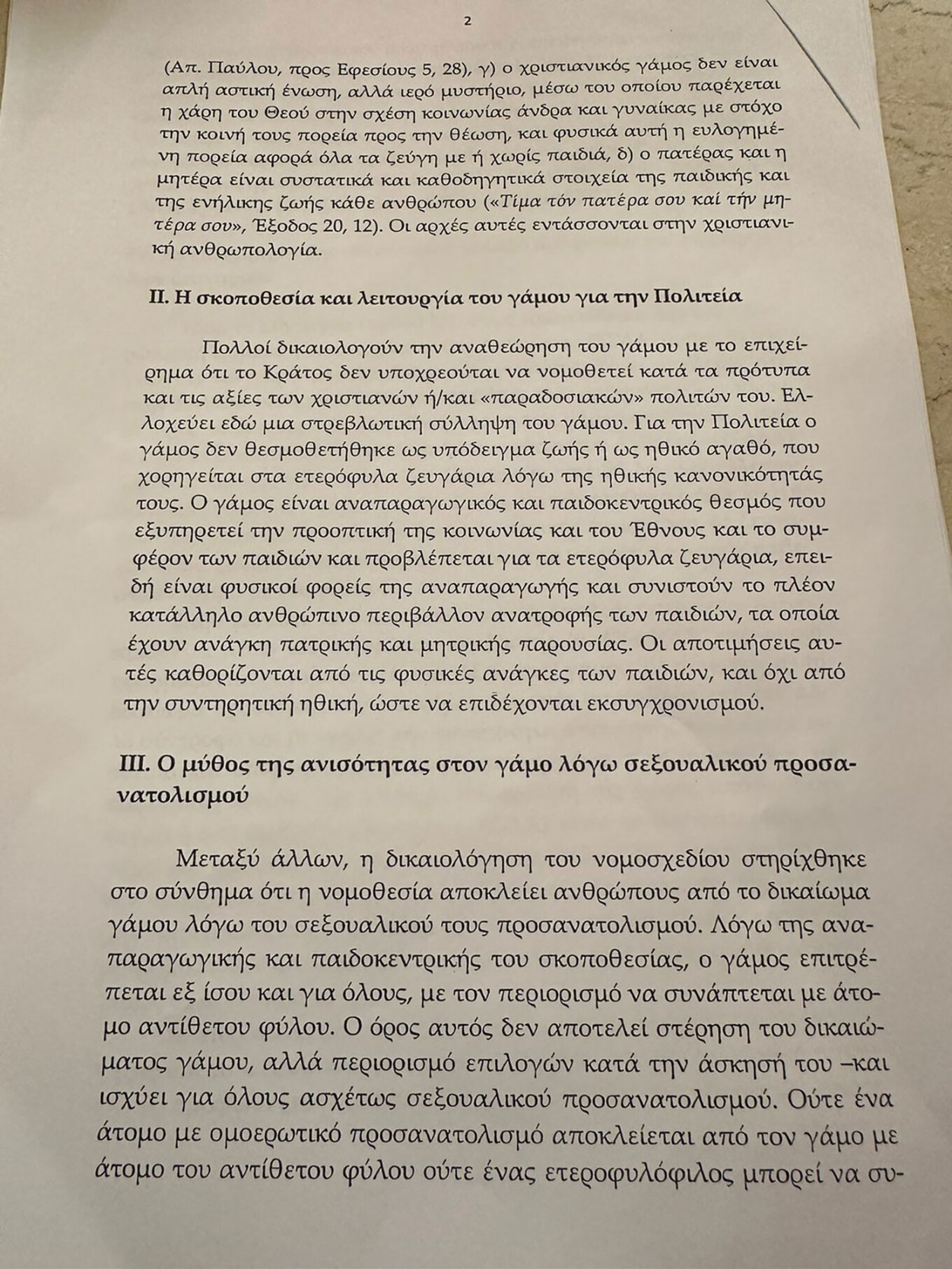
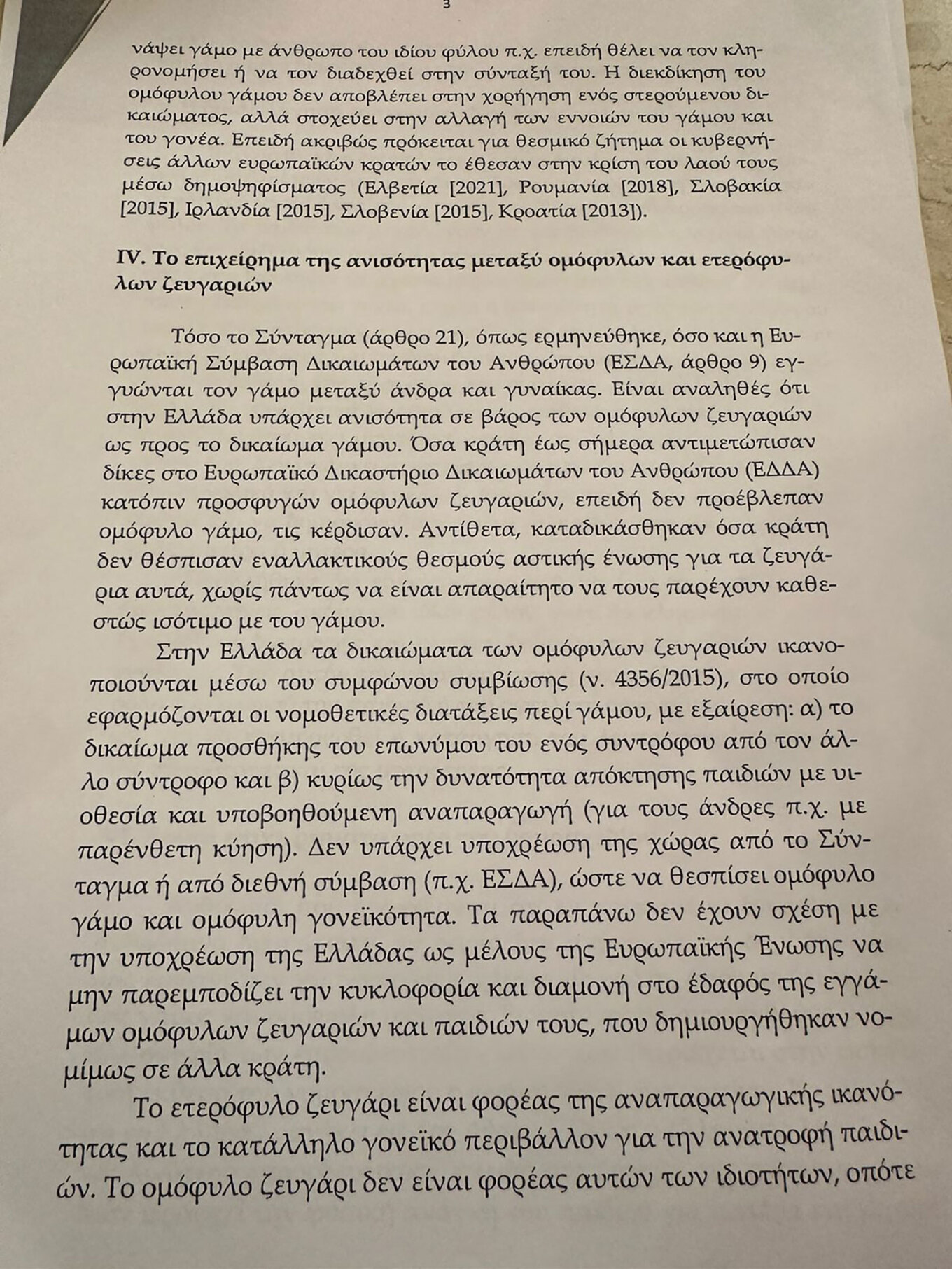
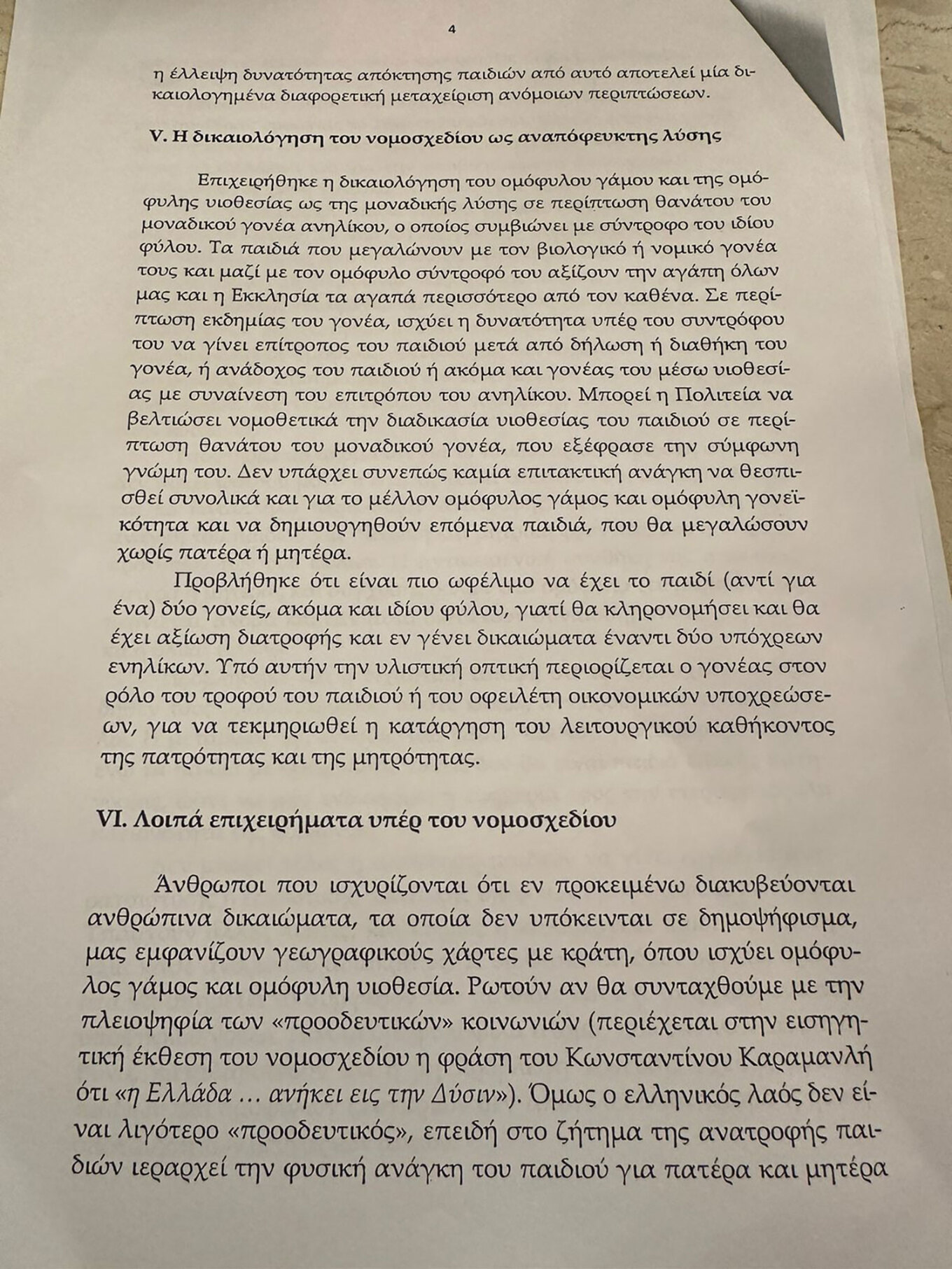
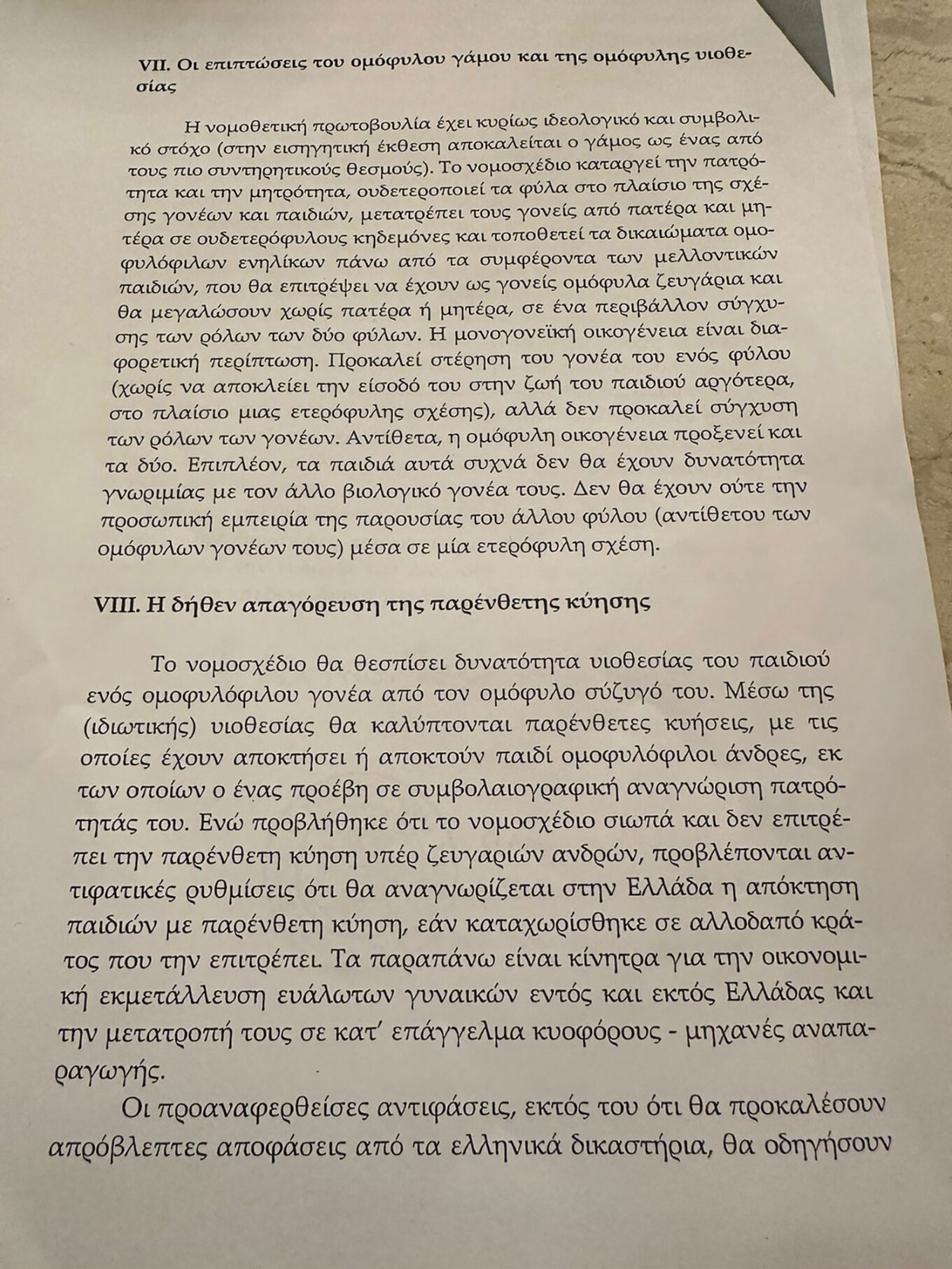
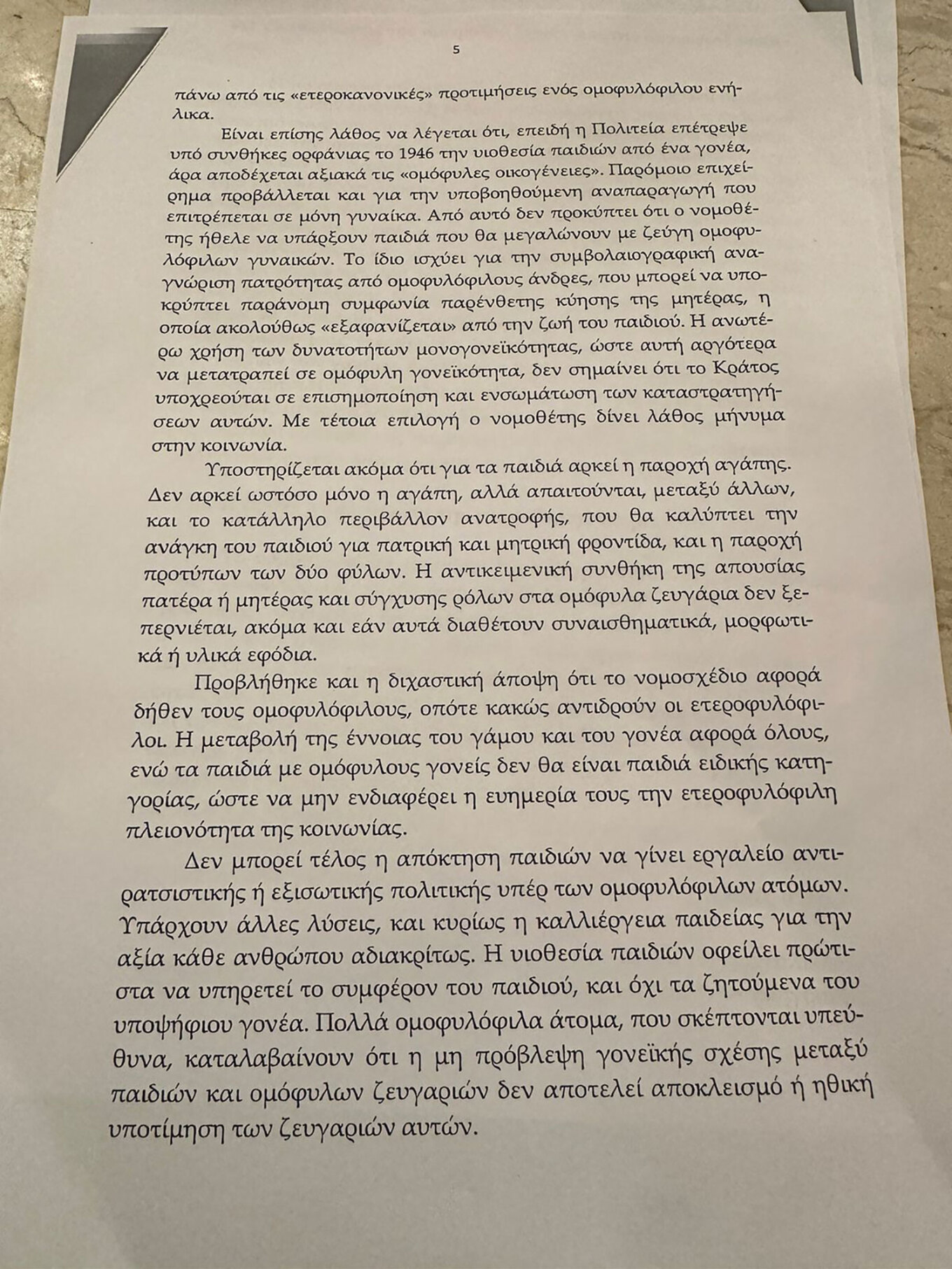
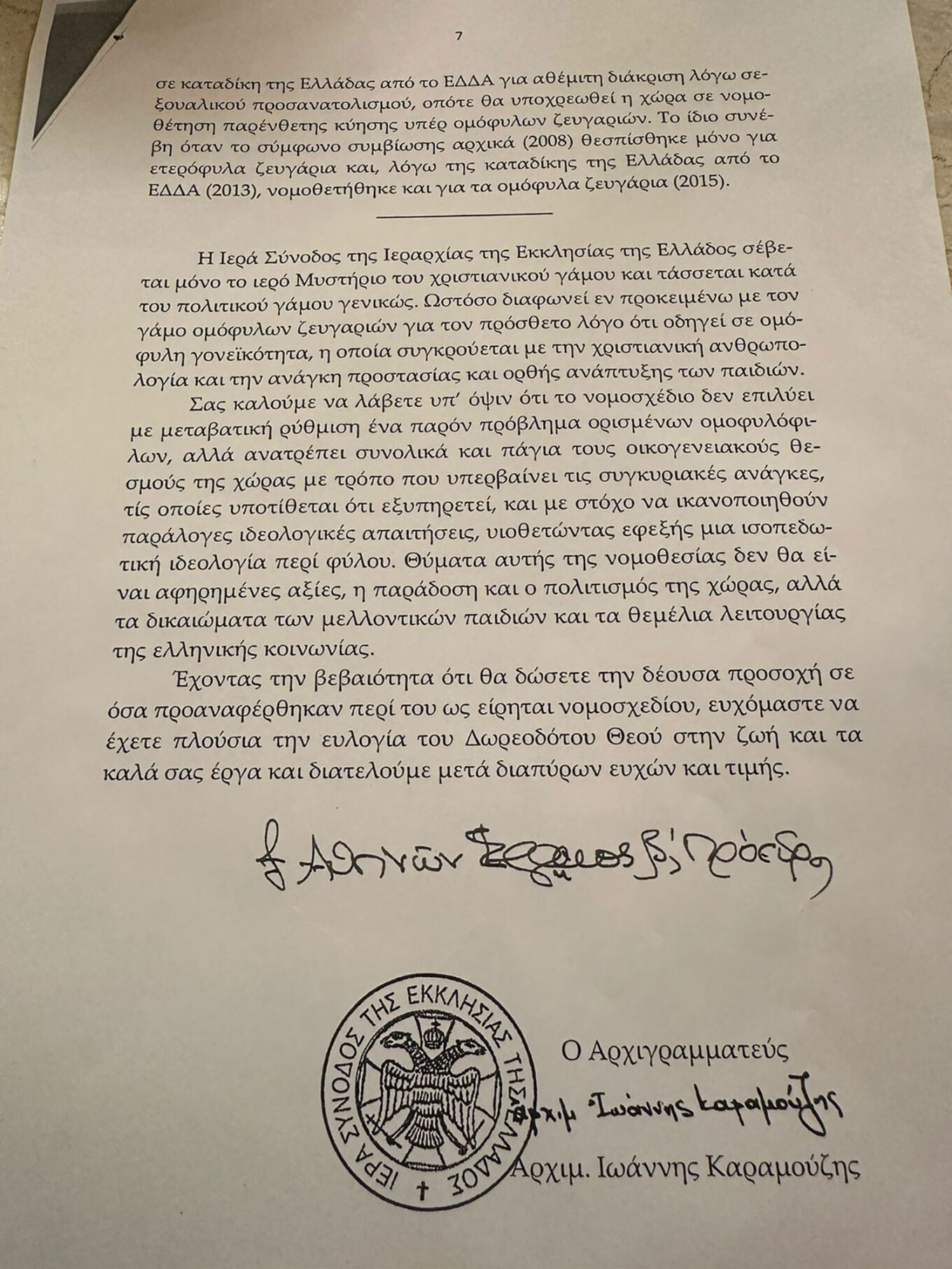
Article translated by: Konstantinos Menyktas






